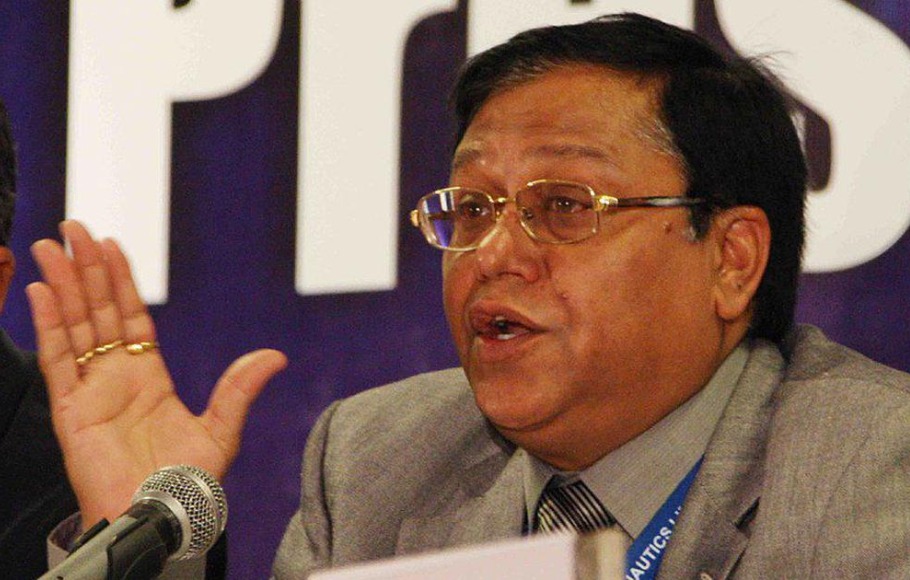
In J&K, internet used only for watching ‘dirty films’: NITI Aayog member
NITI Aayog member VK Saraswat on Saturday said suspension of internet services in Jammu and Kashmir did not significantly affect the economy in the Valley. He said internet is used there only for watching “dirty films”, triggering an angry response from the Kashmir Chamber of Commerce and Industry, which demanded his immediate removal.

Suspension of internet services in Jammu and Kashmir for over five months after the abrogation of Article 370 did not significantly affect the economy since internet was used there only to watch “dirty films”, claimed NITI Aayog member VK Saraswat on Saturday (January 18).
He also said internet services were suspended in Jammu and Kashmir to prevent certain elements from “misusing” information that could affect law and order situation there.
Saraswat made the comment while speaks to reporters after the annual convocation at Dhirubhai Ambani Institute of Information and Communication Technology in Gandhinagar. He was the chief guest at the event. His response came when he was asked why internet services were suspended in Jammu and Kashmir.
“What difference does it make if there’s no internet in Kashmir? What do you watch on internet there? What e-tailing is happening there? Besides watching dirty films, you do nothing there,” he said. “If there is no internet in Kashmir, it does not have any significant effect on the economy,” he said.
Also read | Prepaid mobile connections restored in Jammu and Kashmir
Besides, he accused politicians of trying to stage ‘Delhi-like’ protests in the Valley and fuel such agitations through social media. “Why do politicians want to go to Kashmir? They want to re-create the protests happening on the roads of Delhi in Kashmir. They use social media to fuel protests,” he said.
Saraswat said the reason for suspending internet services in Jammu and Kashmir was to prevent certain elements from misusing information. “If Article 370 had to be removed, and if Kashmir had to be taken forward, we knew there were elements there which will misuse this kind of information in a manner that will affect the law and order situation,” he said.
On recent protests in Delhi’s Jawaharlal Nehru University (JNU), Saraswat said the institution has become a “political battleground” with half of the teachers being “hardcore Leftists”. He called for the issues there to be resolved “democratically”.
Saraswat also said that protests like those against the Citizenship Amendment Act and in JNU affect the economy. “The losses are affecting the economy. We are giving people money, but there is no output from them. Government teachers are getting their dues despite the strike. What is the output…all this affects the economy,” he said.
Also read | SC asks J&K admin to review curbs within 7 days, Cong lauds verdict
Internet has been suspended in Jammu and Kashmir since August 5 last year when Article 370 of the Indian Constitution was revoked by the Centre and the erstwhile state was bifurcated into two Union Territories. On Saturday, 2G mobile data services were restored and conditional access to only “white-listed websites” was granted in Jammu, and Kashmir’s Kupwara and Bandipora.
Condemning Saraswat’s comments, the Kashmir Chamber of Commerce and Industry (KCCI) on Sunday demanded his immediate removal. “We condemn these remarks. They are spreading venom against the people of Kashmir. Nobody gives him the right to speak like this about the people of Jammu and Kashmir and utter this nonsense against us,” KCCI president Sheikh Ashiq told PTI.
Ashiq said the whole world knows that the Valley is suffering due to the internet shutdown and the losses to the business sector have amounted to over ₹18,000 crore in the past six months. “We at the Chamber know that our economy has been deeply affected by the suspension of internet services. If any person says something like this, it speaks a volume about his mind capacity. He has no right to sit in the NITI Aayog,” he said.
(With inputs from agencies)


